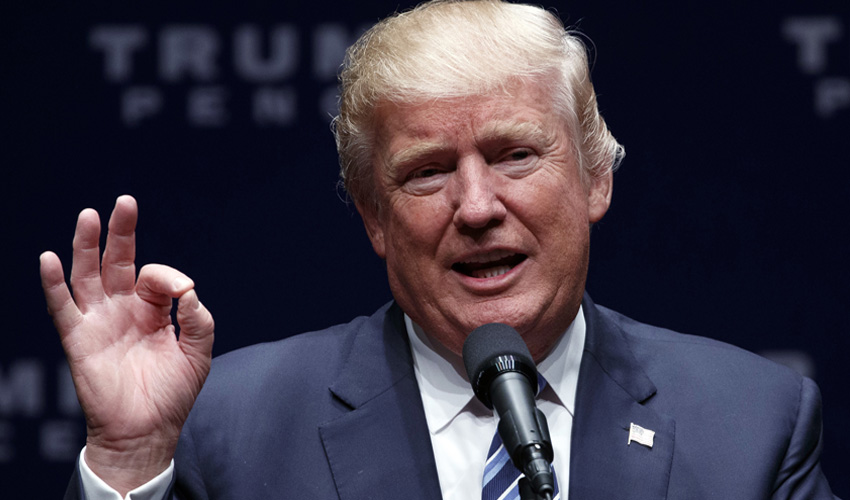As the United States enters into the 2024 presidential election, tension feels pretty palpable. This VP Kamala Harris vs Donald J Trump showdown gives citizens clear alternatives on most crucial issues the nation will encounter in its future.
And from the perspective of their views on key issues – reproductive rights and foreign policy, in particular – how different. So, how do Kamala Harris and Donald Trump stack up?
Abortion
Kamala Harris
Harris is a leading proponent for abortion rights and federal access to the procedure. With her being the first vice president to visit an abortion clinic, Harris can be said to be strong in terms of reproductive rights. Harris has been pretty open in her stance in stopping the further limitation by states regarding access to abortion before viability. This really speaks for itself in being pretty straight-forward about keeping the right to choose in place.
Donald Trump
Trump's legacy in abortion access is huge since he appointed Supreme Court justices who were able to overturn *Roe v. Wade*. The landmark decision has since repealed federal protections and leaves it to the states to decide policy for themselves. Although he opposes a federal abortion ban, he thinks that it is the right of the states to decide what limits they place on abortion access.
Climate Change
Kamala Harris
Like other administration members of the Biden team, Harris shares the stance on climate change, fighting for subsidies on renewable energy and environmental justice, with a strong focus on minorities. Climate impact policies pursued by Harris are a way of furthering the objectives on emissions and green energy ventures.
Donald Trump
Trump's policies on climate are opposed: he regularly questions climate science and supports fossil fuel production as against investments into renewable energy. He went about overturning more than 100 environmental regulations during his tenure as president and mentioned that if re-elected he would undo them again to play fossil fuel politics instead of working for climate change.
Crime and Policing
Kamala Harris
Another area where Harris's policy changes significantly is that she is now for more police funding after previously opposing the idea. She plans to seek greater gun control to end crime, which is still her record on criminal justice reform. She has not lately renounced some of the reforms she once embraced, including reducing mandatory sentences.
Donald Trump
Trump emphasises a tough-on-crime agenda, threatening to deploy the military to Democratic-controlled cities if crime rises, even though the FBI has recently released data showing that crime is falling across the board. He voted for a criminal justice reform bill when he was in office but now speaks out in favour of stricter sentencing and fewer rights under the law. Trump remains an opponent of stricter gun regulations.
Foreign policy
Kamala Harris
Harris believes in an engaged America abroad, supports the use of military alliances, such as NATO, and military aid to Ukraine. She wants to push back against China's economic power but will not disengage fully. Her goal is strengthening alliances to preserve American power and security.
Donald Trump
Trump is more isolationist, often speaking against the alliances, such as NATO, and being hesitant to assist Ukraine. He has even floated the idea of blackmailing NATO members to raise their defense spending and questioned his continued participation in international conflicts. His objective is to reduce economic dependence on China and create a more protectionist foreign policy.
Immigration
Kamala Harris
Harris has publicly spoken out against many of Trump's past immigration policies, but she has also supported Biden restrictions on asylum seekers. Among her efforts to deal with migration are securing private investments in Latin American countries that would reduce the population pressure on the U.S. border.
Donald Trump
Known for strict immigration policies, Trump issued policies during his presidency to include separating families at the border. He now suggests a bolder approach to immigration enforcement, where he will detail and deport undocumented immigrants en masse, a policy supported by his previous policies.
Israel and Gaza
Kamala Harris
Harris supports Israel's right to defend itself against Hamas and calls for increased attention on the humanitarian crisis in Gaza. She advocates for a cease-fire, still supports the two-state solution, while balancing humanitarian concerns with American support of Israel.
Donald Trump
Trump has taken a decidedly pro-Israel stance, at least throughout his presidency - including in his decision to move the United States embassy from Tel Aviv to Jerusalem - and called for Israel to "finish up" its war in Gaza. He has also expressed skepticism toward a two-state solution, taking an even more hardline view than previous administrations.
L.G.B.T.Q. rights
Kamala Harris
Harris has a long record on L.G.B.T.Q. rights, and she's proposed nondiscrimination protections across sectors, including education and healthcare. She wouldn't sign state laws to bar gender-affirming care, trans participation in sports, or access to public facilities-another way of marking commitment to civil rights protections.
Donald Trump
Some of the rights secured under L.G.B.T.Q. law represent views opposed by Trump, especially about transgender people. He was proposing restrictions on gender-affirming care for young people and limiting transgender athletes in women's sports. Largely based on his own campaign proposals, in the course of his presidency, Trump rescinded protections against discrimination and prohibited transgender people from military service.
The 2024 presidential election offers Americans an unusually stark choice. On issues from reproductive rights and climate policy to protections for L.G.B.T.Q. individuals, the visions that Kamala Harris and Donald Trump present on these issues starkly divide the nation. In comparing these two candidates, America's voters are making the future of its public policy; they will shape the directions of American policy for the foreseeable years, deciding as much on the immediate near-term prospects as on fundamental values driving U.S. governance.



























